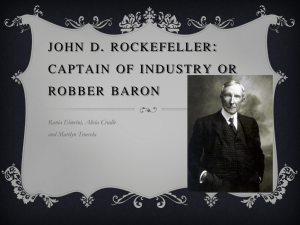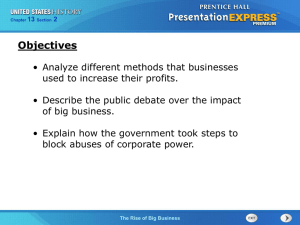Training Physician Scientists: Is it the Right Choice for Me?
advertisement
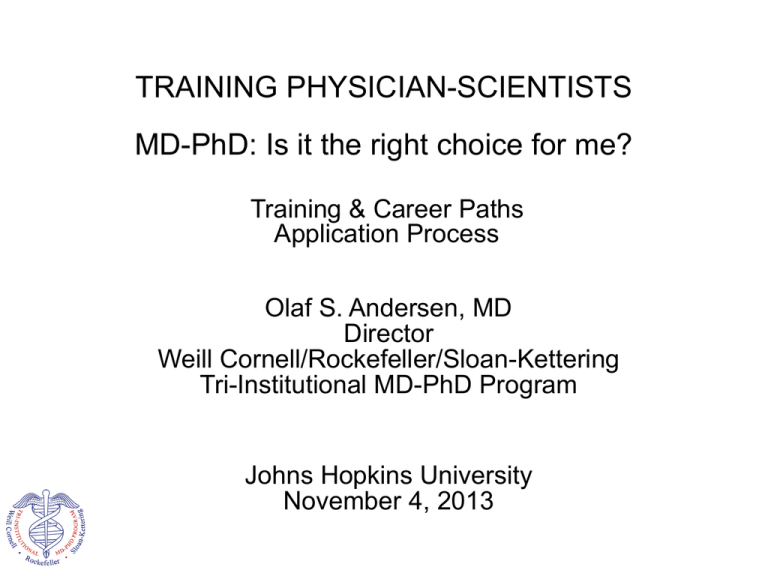
TRAINING PHYSICIAN-SCIENTISTS MD-PhD: Is it the right choice for me? Training & Career Paths Application Process Olaf S. Andersen, MD Director Weill Cornell/Rockefeller/Sloan-Kettering Tri-Institutional MD-PhD Program Johns Hopkins University November 4, 2013 Olaf Sparre Andersen MD University of Copenhagen 1971 Post-doc University of Copenhagen The Rockefeller University 1971-1972 1972-1973 Faculty Weill Medical College of Cornell University (Cornell University Medical College) 1973 - present Current & recent Professor of Physiology & Biophysics activities and of Biochemistry & Structural Biology Director, Weill Cornell/Rockefeller/Sloan-Kettering Tri-Institutional MD-PhD Program Editor-Emeritus, The Journal of General Physiology Research interests Molecular physiology of ion channels Membrane protein-lipid bilayer interactions MD-PhD Training OVERVIEW HISTORY OF MD-PhD TRAINING MD-PhD TRAINING OUTCOMES APPLICATION PROCESS MD-PhD Training OVERVIEW HISTORY OF MD-PhD TRAINING MD-PhD TRAINING OUTCOMES APPLICATION PROCESS MD-PhD Training The goal of MD-PhD training programs is to educate and train physician-scientists, who are prepared to bridge the gap between clinical medicine and laboratory research, which is brought about by technological developments and specialization in both fields. Graduates of MD-PhD programs are prepared to be leaders in all aspects of modern biomedical research and academic medicine: RESEARCH: CLINICAL MEDICINE Basic Research Generalist Disease-Oriented Research Specialist (aka Translational Research) Patient-Oriented Research Population-Oriented Research TEACHING: Basic Science Clinical Disciplines MD-PhD Training Science Medicine Physician-scientists tend to work at the intersection of science and medicine Pathways to become a Physician-Scientist or Clinical Investigator PhysicianScientist MD-PhD College Student MD PhD Clinical Research MD-PhD Training OVERVIEW HISTORY OF MD-PhD TRAINING MD-PhD TRAINING OUTCOMES APPLICATION PROCESS MD-PhD Training • 1956 CWRU (Structured MD-PhD training) • 1964 NYU, AECOM & NWU (NIH MSTP support) MD-PhD Training Medical Scientist Training Program (MSTP) James Shannon, MD Director, NIH (1955-68) Saul J. Farber, MD Acting Dean, NYU (1963-66) MD-PhD Training • 1956 CWRU (Structured MD-PhD training) • 1964 NYU, AECOM & NWU (NIH MSTP support) • 1985 – present National MD-PhD Student Conference • 1995 – present National Association of MD-PhD Programs • 2004 – present AAMC/GREAT MD-PhD Section • 1965 4 Programs (1 non-MSTP, 3 MSTP) • 2013 ~100 Programs (44 MSTP, ~60 non-MSTP) ~5,100 MD-PhD students MD-PhD Training OVERVIEW HISTORY OF MD-PhD TRAINING MD-PhD TRAINING OUTCOMES APPLICATION PROCESS MD-PhD Training The mission of the physician-scientist is to promote better health and enhance the quality of life by reducing disability and death from disease. In order to promote health, it is necessary to understand not only normal body function but also how, and why, disease develops. You need to know how our genes (and gene products) interact among each other and with the environment – in health, in disease. MD-PhD Training Environment THE WHOLE BODY Organ Systems Tissues Cells Subcellular Organelles Molecules MD-PhD Training CYSTIC FIBROSIS Genetic defect in Cl− secretion across the luminal membrane of epithelia of exocrine glands, intestine, and airways Molecular defect: mutation in an ATP-dependent chloride channel (cystic fibrosis transmembrane conductance regulator = CFTR) Mutant CFTR is improperly processed in the endoplasmic reticulum and CFTR does not get inserted into the luminal plasma membrane Cystic Fibrosis is fatal, but lack of CFTR does not affect isolated epithelial cells It is only when the cells are organized into secretory epithelia that the defective Cl− secretion becomes a problem THE MOLECULAR DEFECT IS LETHAL TO THE WHOLE BODY, BUT HAS LITTLE IF ANY CONSEQUENCE FOR THE INDIVIDUAL CELL THE SEVERITY OF THE DISEASE VARIES CONSIDERABLY AMONG PEOPLE WITH THE SAME GENETIC DEFECT MD-PhD Training What? How? Why? MD-PhD Training Models for MD-PhD Programs MD-PhD Training Principles Guiding the Development of MD-PhD Training Programs MD-PhD Students are Human (they should not remain in training forever) The question is not: what would we like our students to know? The question is: what MUST they know? Weill Cornell/Rockefeller/Sloan-Kettering Tri-Institutional MD-PhD Program Weill Cornell/Rockefeller/Sloan-Kettering Tri-Institutional MD-PhD Program Weill Cornell/Rockefeller/Sloan-Kettering Tri-Institutional MD-PhD Program The New Weill Cornell Curriculum I An integrated design spanning four years, where: • Science is the foundation of modern medicine • The patient is the center of everything we do • Physicianship is the essence of professionalism and clinical skills • Basic sciences will be presented and learned in a clinical context. • Normal and abnormal biology will be integrated and learned concurrently. • Multiple learning formats, including both traditional and innovative approaches: e-learning, flipped classrooms, skill sessions, clinical reasoning, problem-based learning seminars, laboratories, journal club, lectures, service learning, and others. Weill Cornell/Rockefeller/Sloan-Kettering Tri-Institutional MD-PhD Program The New Weill Cornell Curriculum II First Course (August-December of M1): Fundamental Principles of Medicine Core concepts in basic science, patient care, and physicianship Emphasis on the three themes of Science, Patient and Physician; patient experiences as Disease Paradigms Second Course (January of M1 – December of M2): Health and Disease Normal and abnormal biology, organized by organ system Continued emphasis on the three themes Clinical Clerkships Deep and active immersion in patient care Continued emphasis on the basic sciences and pathophysiology Weill Cornell/Rockefeller/Sloan-Kettering Tri-Institutional MD-PhD Program Medical School I Basic Science Curriculum, 1.5 Yrs WCMC MD-PhD-specific Graduate Courses, Laboratory Rotations, Clinical Rotations 4-5 Yrs RU, SKI, or WCMC 1.5 Yrs WCMC Graduate School Advanced Graduate Course Work, Thesis Research, Clinical Electives Medical School II Clinical Studies in Inpatient and Outpatient Settings Weill Cornell/Rockefeller/Sloan-Kettering Tri-Institutional MD-PhD Program MEDICAL SCHOOL I • 1.5 Years of Medical College Education • Careers in Biomedicine Discussion Series • 3 Research Rotations (3 different laboratories in at least 2 different institutions) • Frontiers in Biomedical Science I Critical Reading of Scientific Literature • Frontiers in Biomedical Science II Introduction to Molecular Medicine • Introduction to Clinical and Translational Research • Tri-Institutional Research Lunches • Introduction to Medicine for Clinical Investigators Weill Cornell/Rockefeller/Sloan-Kettering Tri-Institutional MD-PhD Program GRADUATE SCHOOL • • • • • • • • Three graduate schools: WGS, RU and GSK Comparable graduate school requirements Modest course requirements (usually advanced courses only) Thesis lab Chosen by September of Year 3 Qualifying exam (Thesis proposal) by December of Year 4 Teaching opportunities (elective) Clinical opportunities (elective) Thesis defense by December of Year 6 ☺ • Tri-Institutional housing First four years at WCMC, fifth year at WGS (SKI & WCMC), the rest at RU • Research supplement: $1,500/year☺☺ • Stipend supplement: $5,000/year ☺☺☺ (if you apply for and receive your own fellowship) MD-PhD Training BIOMEDICAL RESEARCH IN THE 21st CENTURY Biology & Medicine Chemistry and Chemical Biology Physics and Physical Biology Mathematics and Mathematical Modeling Bioengineering Economics, Epidemiology, Policy and Statistics Computer Science and Information Technology Ethics and Philosophy Not every program offers every possible PhD, you have to explore the options at programs you plan to apply to MD-PhD Training What is special about MD-PhD education and training? MD-PhD vs MD: Structured research training MD-PhD vs PhD: Understanding of human biology (how normal and abnormal function result from complex interactions at many levels of specialization) MD-PhD Training MD-PhD TRAINING ADVANTAGES: Broad education in human biology Broad range of career choices DISADVANTAGES: Very long education and training Difficult to manage conflicting pressures from laboratory, clinical responsibilities and family FULL FINANCIAL SUPPORT: Enables careers in academic medicine (but this is not a free lunch) MD-PhD Training OVERVIEW HISTORY OF MD-PhD TRAINING MD-PhD TRAINING OUTCOMES APPLICATION PROCESS MD-PhD Training Differing perceptions of MD-PhD training and training outcomes Clinicians’ perception of MD-PhD graduates? They all become basic scientists! Basic scientists’ perception of MD-PhD graduates? They all become clinicians! Conclusion? We must be doing something right! Post-Graduate Training Pathways • About 95% of graduates pursue clinical residencies followed by fellowship training. 3 to 7+ years of additional training, varies with specialty fellowship offers opportunity to return to research • 75% of graduates become medical school faculty • 50% continue to do significant research • Many fill academic leadership roles • Alternate pathways include industry and research institutions (NIH, HHMI, etc). Training Physician-Scientists The Importance of Post-Graduate Training The MD does not make a physician, it prepares you to become one The PhD does not make you a scientist, it prepares you to become one MD-PhD Training Duration of Post-Graduate Training in Different Specialties Clinical Specialty Specialty training Dermatology 4 years Medicine 3 years Neurology 4 years Pathology 4 years Pediatrics 3 years Psychiatry 4 years Radiology 5 years MD-PhD Training Duration of Post-Graduate Training in Different Subspecialties Clinical Specialty Specialty training Subspecialty training Dermatology 4 years 1 Medicine 3 years 2 – 4 years Neurology 4 years 1 – 3 years Pathology 4 years 1 – 2 years Pediatrics 3 years 2 – 3 years Psychiatry 4 years 1 – 2 years Radiology 5 years 1 year year MD-PhD Training Duration And of then Post-Graduate the Postdoctoral Training Research for a Research TrainingCareer Clinical Specialty Specialty training Subspecialty training Dermatology 4 years 1 Medicine 3 years 2 – 4 years Neurology 4 years 1 – 3 years Pathology 4 years 1 – 2 years Pediatrics 3 years 2 – 3 years Psychiatry 4 years 1 – 2 years Radiology 5 years 1 Postdoctoral Fellowship year year 1 – 3 years MD-PhD Training Brevity is not just a virtue, it is a necessity MD-PhD Training ≠ MD + PhD Training MD-PhD Training Basic BB a sic RR e se a rch a sicResearch e se a rch Translational TT rara n sla tiotio na R e se a rch n sla n laResearch lR e se a rch Research CC linlin ica lR e se a rch RESEARCH RREESSEEAARRCCHH Clinical ica lR e se a rch Epidemiological EE p id em ioio lolo g ica l Research R e se a rch p id em g ica lR e se a rch Industrial Development InIn du l Research R e se a rch & &D e ve lolo pm en d stria u stria lR e se a rch& D e ve pm e tn t rara inin inin gg h DT T YYOOUU MMDD-P-Ph D Student CLINICAL CCLLIN MMEEDDIC INIC ICAALLMEDICINE ICIN INEE Academic AA caca de icic dm em InIn du ADMINISTRATION d stry u stry AADDMMIN INISISTTRRAATTIO IONN Industry Public PP ub PP o licy u lic b licPolicy o licy MD-PhD Training OVERVIEW HISTORY OF MD-PhD TRAINING MD-PhD TRAINING OUTCOMES APPLICATION PROCESS Whom do MD-PhD Programs seek? Applicants with integrity and maturity who show: • • • • Passion for research Concern for others An aptitude for working with others Leadership potential • A diverse student body How do MD-PhD programs evaluate their applicants? • Research experiences • Academic records – including MCAT scores • Personal statements – why MD-PhD? • Letters of recommendation from research mentors • Experience in caring for others • Extracurricular activities and Life experiences What constitutes a substantive research experience? • Sufficient research experience to understand what you are getting into: Multiple summer projects Senior thesis research One or more years pursuing research activities after undergraduate degree • Familiar with the idea of testing a hypothesis • Ability to recover from failure Statistics • Nationally, there are about 5,100 MD-PhD trainees • In the 2012 entering MD-PhD class 36% were women 11% were students of diversity • 34% of MD-PhD applicants entered an MDPhD Program MD-PhD Applicant Statistics – 2011-12 Total Applicant Pool (n= 1,853) 100% Average MCATS GPA 31.2 4 - 43 3.6 2.2 - 4 Matriculants (n= Average MCATS GPA Range 635) 34% Range 34.5 23 - 43 3.8 2.9 - 4 MD-PhD Applicant Statistics Distribution of MCAT Scores 500 450 400 Applicants Matriculants 27% Students 350 300 9% 250 200 150 100 50 0 3 - 26 27 - 29 30 - 32 MCAT 33 - 35 36 - 38 39 - 45 MD-PhD Applicant Statistics Distribution of GPA Students 400 350 Applicants 300 Matriculants 250 21% 200 7% 150 100 50 0 1.6 - 3.0 3.0 - 3.2 3.2 - 3.4 3.4 - 3.5 3.5 - 3.6 3.6 - 3.7 3.7 - 3.8 3.8 - 3.9 3.9 - 4.0 GPA Application Timeline • Application to AMCAS – Summer before entry year Secondary applications Letters of recommendation • • • • • Interviews – October to February Final decisions – November to March Revisit programs – March and April Process complete – April 30 Program start – June to August Weill Cornell/Rockefeller/Sloan-Kettering Tri-Institutional MD-PhD Program 2012-13 ADMISSIONS 508 Applicants 488 Complete Applications 68 Interviewed Applicants 44 Acceptance Letters 18 Matriculating Students What should applicants look for in a MD-PhD program? • Research environment • • • • • research opportunities, faculty, students, programs and support Academic environment science and clinical curricula, program integration Program organization, community involvement, alumni achievements who do you go to for advice? Location (the training lasts 7+ years) A sense of belonging or “good fit” Students who are smarter than you are Finally As an MD-PhD you can become anything you want to be; but someday you have got to make a decision! Biomedical research is changing at a rapid pace; you have got to adapt − and be ready to make new decisions! NOBODY remembers what your thesis research was about; it is the training and mentoring that is important! For more information: http://www.aamc.org/mdphd or Google: AAMC MD-PhD Reasonable people adapt themselves to the world. Unreasonable people attempt to adapt the world to themselves. All progress, therefore, depends on unreasonable people. (George Bernard Shaw) Weill Cornell/Rockefeller/Sloan-Kettering Tri-Institutional MD-PhD Program Weill Cornell/Rockefeller/Sloan-Kettering Tri-Institutional MD-PhD Program Career Choices of Tri-I MD-PhD Graduates (who have completed their training) Weill Cornell/Rockefeller/Sloan-Kettering Tri-Institutional MD-PhD Program Course of Study (Seven-Year Plan) Graduation Weill Cornell/Rockefeller/Sloan-Kettering Tri-Institutional MD-PhD Program Gastro-Intestinal Pilot Unit
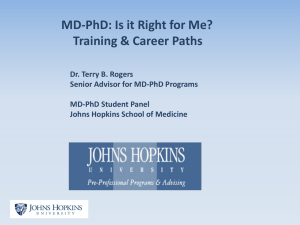
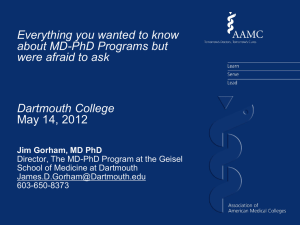
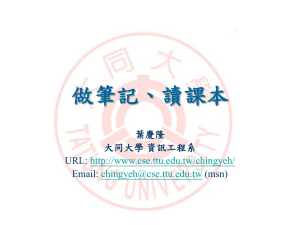
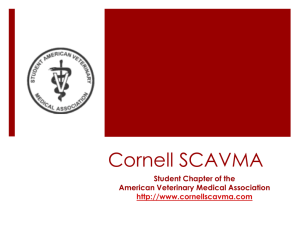

![men_who_built_america[1]](http://s2.studylib.net/store/data/005219845_1-7979604da89ac700f7913bb56611cc41-300x300.png)
